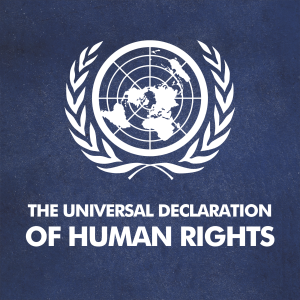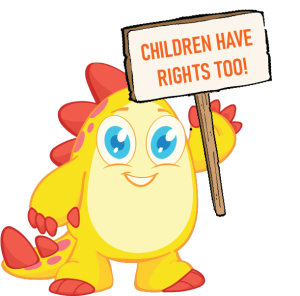 Human Rights Week takes place at the start of December each year, in the lead up to Human Rights Day on 10 December.
Human Rights Week takes place at the start of December each year, in the lead up to Human Rights Day on 10 December.
This important day marks the anniversary of the Universal Declaration of Human Rights (UDHR), which was adopted by the United National General Assembly in 1948.
Human Rights Week gives us an opportunity to celebrate this international historic event. The UDHR was the first document of its kind, to articulate the fundamental human rights that we all hold at an international level. It has been translated into over 500 languages, and is widely recognised as having paved the way for the adoption of more than 70 human rights treaties which are applied across the world. The UDHR tells us that we are all equal, regardless of our differences, and we all deserve to be treated and live with dignity.
Celebrating this week also gives us an opportunity to check in on how we are protecting, respecting and promoting human rights – within our nations, and our communities. To mark the 75th anniversary of the UDHR, the United Nations has run a year-long campaign throughout 2023 to promote its principles. The Human Rights 75 Initiative encourages us all to think about how we can make human rights real in our current lives, with the aim to ‘rejuvenate the Universal Declaration of Human Rights, demonstrate how it can meet the needs of our time AND advance its promise of freedom, equality and justice for all’.
 In this office, we have an important role in promoting the human rights of children and young people in care and youth detention. Children face particular challenges in learning about and exercising their rights, including participating in decisions that affect their lives, having access to the supports they need to engage in full citizenship, and their vulnerabilities to experiencing abuse (from both individuals, and systems).
In this office, we have an important role in promoting the human rights of children and young people in care and youth detention. Children face particular challenges in learning about and exercising their rights, including participating in decisions that affect their lives, having access to the supports they need to engage in full citizenship, and their vulnerabilities to experiencing abuse (from both individuals, and systems).
It is sobering to think that, during the year, we have raised serious human rights issues affecting children and young people in South Australia – such as:
- Our criminal justice system arresting and locking up primary school aged children, often in traumatic and harmful conditions
- Significant under-resourcing for our child protection and family support systems, with harmful consequences for the day-to-day lives of children and young people in care and detention
- Ongoing inequalities for First Nations children and young people, within systems that are not meaningfully upholding their cultural rights.
Some of us – including here at the Guardian’s office – are supported (and obligated) by laws to specifically advocate for the rights of children and young people. But the responsibility for advancing and supporting human rights lies with the whole of community. This week is a good time for us all to ask ourselves –
How am I incorporating a human rights-based approach in my work and in my personal life?
What active role do I (and can I) play in promoting human rights?
How can I support children and young people in care to have their rights met?
How and where is my voice being raised in the rights arena?
A great starting point is to familiarise ourselves with the UDHR (through resources such as the Human Rights 75 initiative page), the UN Convention on the Rights of the Child and South Australia’s Charters of Rights for children in care and detention.
Let’s work together to ensure children and young people in care and youth detention can access all of their human rights, and grow into active and fulfilling lives as valued members of our communities.
